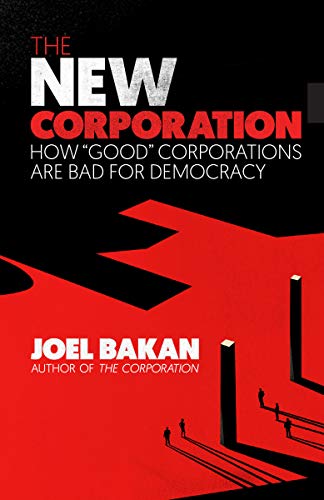autres publications
autres publications Gouvernance normes de droit Publications
Résolutions climatique : la grande incertitude
Ivan Tchotourian 25 octobre 2023 Ivan Tchotourian
Alors que la France vient de faire le choix de rejeter toute initiative législative sur la thématique des résolutions climatiques (dans le but de préserver le pouvoir des actionnaires en ce domaine), l’incertitude demeure donc ! Dans un billet publié sur le site de L’initiative canadienne de droit climatique , j’ai pu résumer les termes du débat : « Incertitudes sur les résolutions climatiques des actionnaires » (5 juin 2023).
Petit extrait :
Le Say on Climate est devenu un objet juridique en débat ! Les résolutions climatiques ont assurément de l’avenir tant les actionnaires manifestent une volonté croissante de voter sur la stratégie climatique, mais leur avenir n’est pas assuré. Vigilance donc… Mark Carney, l’envoyé spécial des Nations Unies pour le financement de l’action climatique, veut pourtant inciter les investisseurs à contraindre les entreprises. Or, comment contraindre les entreprises à soumettre au vote annuel de leurs actionnaires leur stratégie climatique, notamment lorsqu’ils ont déposé une résolution en ce sens ? Faut-il continuer laisser libre le CA de décider d’accepter ou non le Say on Climate ? Le droit en matière de dépôt des résolutions actionnariales devrait-il être retouché ? Au Canada, l’article 137(5) LCSA (et son équivalent au Québec, l’article 200 de la LSAQ) encadre les motifs substantiels de rejet des propositions actionnariales. Si aucun de ces motifs ne vise expressément le climat, quelle va être la position adoptée par les CA des entreprises et banques canadiennes à l’avenir ? Tout comme en France, il est admis de longue date au Canada que la stratégie relève des pouvoirs du CA. Les mêmes difficultés ne risquent-elles pas alors de se produire et de créer des tensions entre le milieu d’affaires et les acteurs de la société civile œuvrant pour une gouvernance de long terme ? Il est plus que nécessaire qu’un dialogue ait lieu entre CA, direction et investisseurs sur cet enjeu, ou qu’une évolution ne s’opère dans la conception du fonctionnement traditionnel des sociétés et de la répartition des pouvoirs… ou encore, qu’une position du législateur ou du régulateur (ACVM, AMF, etc.) soit prise à l’image de l’autorité boursière américaine. Une lutte contre le changement climatique est à ce prix.
À la prochaine…
autres publications Base documentaire engagement et activisme actionnarial Gouvernance Publications
Répertoire 2022 des propositions en circulaire
Ivan Tchotourian 24 avril 2022 Ivan Tchotourian
Intéressante information du MÉDAC qui propose dans un seul et même document de regrouper l’ensemble des propositions faites aux banques : « Répertoire 2022 des propositions en circulaire ».
- Document en version .PDF : ici
Si vous voulez en savoir plus sur l’activisme au Québec auprès des banques, c’est le moment !
À la prochaine…
actualités internationales autres publications Gouvernance Normes d'encadrement objectifs de l'entreprise Publications
Bien distinguer le purpose, la mission, la valeur et la vision
Ivan Tchotourian 22 mars 2021 Ivan Tchotourian
L’University of Oxford, l’University of California, Berkeley, BrightHouse, la British Academy, Federated Hermes EOS et Wachtell, Lipton, Rosen & Katz ont publié un excellent rapport dont je recommande fortement la lecture : « Enacting Purpose within the Modern Corporation: A Framework for Boards of Directors ». En plus de revenir sur le purpose, ce rapport offre une distinction entre des notions souvent confondues…
Extrait
- « Purpose. Purpose States « Why » an Organization Exists: As Professor Colin Mayer, one of our co-chairs puts it, “the purpose of business is to solve the problems of people and planet profitably, and not profit from causing problems”. This statement deliberately leaves open the question of the specific purpose of each organisation, but does deliberately and carefully demand a reason for existence alongside the pursuit of profit. Purpose sets out the reasons why the organisation conducts its various activities, articulating what societal challenge, need or benefit the organisation seeks to address. This sets it apart from the three other important concepts for organisations below. Once this purpose has been debated and formally agreed, the board should not only publish it but also ensure that its internal governance and external reporting evaluate its activities and the outcomes generated against its stated purpose.
- « Values. Values Describe « How » the Organization Behaves : These are often short and punchy bullet points, detailing specific expectations and principles of interaction within the organisation’s internal or external operating environment. More importantly they should be a call to action. These values should inform and guide the specific day to day behaviours and decisions taken by every member of the organisation. They should be articulated in a way that the intent is clearly understood, and the board of directors should ensure that the organisational culture embraces these values and enables them to be put into practice by every member of the organisation. Boards of directors also need to ensure that employees are empowered to ensure that key suppliers act in compliance with the organization’s stated values.
- « Mission. Mission Sets Out « What » the Organisation Does: It captures the day to day activities of the organisation, defining quite literally what business it is in. It is directly linked to the strategy of the organisation and is underpinned by the values deployed to deliver the mission. It is very practical and descriptive in nature. Mission therefore sets out specifically and practically what the organisation aims to do in pursuit of its stated purpose. Mission statements provide an opportunity for boards of directors to set out what they specifically intend to deliver to each of the organisation’s different key stakeholder groups.
- « Vision. Vision Describes « Where » the Organisation Intends to Have Impact: It describes the outcome that the organisation wants to see from the successful delivery of its stated purpose. Put simply, vision captures what success looks like. By its nature, vision statements are aspirational, large scale and usually long-term.
À la prochaine…
autres publications Gouvernance Normes d'encadrement parties prenantes place des salariés Publications
Parution récente : La place des salariés dans l’entreprise
Ivan Tchotourian 9 mars 2021 Ivan Tchotourian
Ouvrage qui mérite d’être lu : « La place des salariés dans l’entreprise » chez Mare et Martin. Un bel ouvrage d’Emmanuelle Mazuyer dont je recommande la lecture…
Résumé
Cinquante ans après les accords de Grenelle qui ont acté la création de la section syndicale dans les entreprises, et au moment des débats autour de la loi PACTE ambitionnant de « mieux associer les salariés à la vie et aux résultats des entreprises », ces contributions du présent ouvrage, mettent en perspective les questions fondamentales que soulève la problématique de la représentation et de l’implication des salariés dans l’entreprise.
Elles ont été pensées et organisées suivant la progressivité des formes d’association et de participation des salariés, de la verticalité vers davantage d’horizontalité, moins d’autoritarisme et peut-être plus de démocratie.
Cet ouvrage offre ainsi des regards croisés sur les différentes modalités de participation et d’implication (financière, actionnariale, syndicale, directe) des salariés à la gouvernance de l’entreprise. Critique, il interroge la distinction habituelle de la répartition des pouvoirs entre détenteurs du capital et force de travail dans l’entreprise. Novateur, il envisage les salariés en tant que parties prenantes ou actionnaires, voire dirigeants d’entreprises dans certains cas, afin d’offrir une vision large du rôle qu’ils peuvent jouer. Ouvert, il permet une lecture pluridisciplinaire (droit et économie) et comparée (droit anglais) sur la place des salariés dans l’entreprise.
À la prochaine…
autres publications Gouvernance normes de droit Publications
Nouvel ouvrage : Corporate Law and the Theory of the Firm: Reconstructing Corporations, Shareholders, Directors, Owners, and Investors
Ivan Tchotourian 25 septembre 2020 Ivan Tchotourian
Bel ouvrage qui rejoindra sans doute ma bibliothèque publié par Dennis Huber : « Corporate Law and the Theory of the Firm: Reconstructing Corporations, Shareholders, Directors, Owners, and Investors » (Routledge, avril 2020).
Résumé :
Dozens of judicial opinions have held that shareholders own corporations, that directors are agents of shareholders, and even that directors are trustees of shareholders’ property. Yet, until now, it has never been proven. These doctrines rest on unsubstantiated assumptions.
In this book the author performs a rigorous, systematic analysis of common law, contract law, property law, agency law, partnership law, trust law, and corporate statutory law using judicial rulings that prove shareholders do not own corporations, that there is no separation of ownership and control, directors are not agents of shareholders, and shareholders are not investors in corporations. Furthermore, the author proves the theory of the firm, which is founded on the separation of ownership and control and directors as agents of shareholders, promotes an agenda that wilfully ignores fundamental property law and agency law. However, since shareholders do not own the corporation, and directors are not agents of shareholders, the theory of the firm collapses.
The book corrects decades of confusion and misguided research in corporate law and the economic theory of the firm and will allow readers to understand how property law, agency law, and economics contradict each other when applied to corporate law. It will appeal to researchers and upper-level and graduate students in economics, finance, accounting, law, and sociology, as well as attorneys and accountants.
À la prochaine…
autres publications Publications Responsabilité sociale des entreprises Structures juridiques
Nouvel ouvrage : The New Corporation: How « Good » Corporations Are Bad for Democracy
Ivan Tchotourian 16 septembre 2020 Ivan Tchotourian
Le professeur de UBC Joel Bakan nous gâte avec un nouvel ouvrage intitulé : « The New Corporation: How « Good » Corporations Are Bad for Democracy » (Allen Lane).
Résumé :
From the author of The Corporation: The Pathological Pursuit of Profit and Power comes this deeply informed and unflinching look at the way corporations have slyly rebranded themselves as socially conscious entities ready to tackle society’s problems, while CEO compensation soars, income inequality is at all-time highs, and democracy sits in a
precarious situation.
Over the last decade and a half, business leaders, Silicon Valley executives, and the Davos elite have been calling for a new kind of capitalism. The writing was on the wall. With income inequality soaring, wages stagnating, and a
climate crisis escalating, it was no longer viable to justify harming the environment and ducking taxes in the name of shareholder value. Business leaders realized that to get out in front of these problems, they had to make
social and environmental values the very core of their messaging. Their essential pitch was: Who could be better suited to address major societal issues than efficiently run corporations? There is just one small problem with their
doing well by doing good pitch. Corporations are still, ultimately, answerable to their shareholders, and doing well always comes first.
This essential truth lies at the heart of Joel Bakan’s argument. In lucid and engaging prose, Bakan lays bare a litany of immoral corporate actions and documents corporate power grabs dressed up as social initiatives. He makes
clear the urgency of the problem of the corporatization of society itself and shows how people are fighting back and making gains on a grassroots level.
À la prochaine…
autres publications Publications Responsabilité sociale des entreprises
Nouvel ouvrage : The accountability of transnational corporations for the adverse impacts of their business activities
Ivan Tchotourian 16 septembre 2020 Ivan Tchotourian
Mme Adeline Michoud vient de publier sa thèse chez Schulthess Verlag dans la collection Genevoise sous le titre : « The accountability of transnational corporations for the adverse impacts of their business activities: an international and comparative law study ». Nul doute que cet ouvrage intéressera nos lectrices et lecteurs du blogue !
Résumé :
In the last decades, transnational corporate activities have given rise to serious human rights abuses. In this doctoral thesis, the author provides an exhaustive account of the obstacles preventing the implementation of an effective corporate social responsibility system. The first chapter analyses the mechanisms developed in public international law to introduce corporate regulation. The second chapter explains the inadequacies of both American and European private international law systems to receive victims’ claims. Finally, the third chapter elaborates a comparative study of the different national law mechanisms to establish the responsibility of transnational corporations. The present book is addressed to all lawyers and more generally to all readers interested in the question of business and human rights.
À la prochaine…



